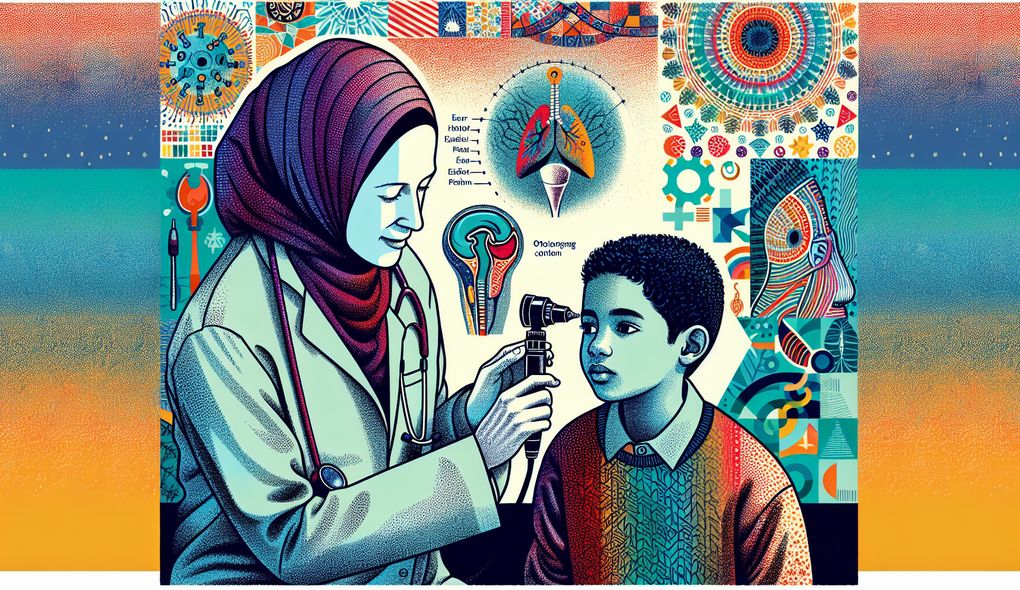Describe your experience with diagnosing and decision-making in otolaryngology.
INTERMEDIATE LEVEL

Sample answer to the question:
I have been working as an Otolaryngologist for the past three years, where I have gained extensive experience in diagnosing and making decisions in the field. During this time, I have diagnosed and treated various conditions related to the ears, nose, and throat, as well as head and neck disorders. I have strong clinical skills that enable me to conduct thorough examinations and interpret diagnostic tests effectively. Additionally, I am well-versed in using modern ENT equipment and technology to aid in diagnosis. My decision-making abilities have been honed through years of experience and continuous learning in the field. I am able to analyze patient symptoms, diagnostic test results, and medical histories to develop accurate and effective treatment plans. My commitment to patient safety and quality care is unwavering, and I prioritize clear communication with patients to ensure they understand their condition and the recommended treatment options.
Here is a more solid answer:
During my time as an Otolaryngologist, I have developed strong diagnostic skills that allow me to accurately identify and assess conditions affecting the ears, nose, and throat. I rely on a combination of patient interviews, physical examinations, and advanced diagnostic tests to gather information for diagnosis. For example, when dealing with chronic sinusitis, I thoroughly examine the patient's nasal passages using rhinoscopy and conduct imaging tests such as CT scans to evaluate the sinus cavities. My decision-making abilities are equally important in ensuring the best treatment approach for my patients. I carefully review all diagnostic information and consider factors such as the patient's medical history, lifestyle, and preferences to develop personalized treatment plans. I also collaborate with other specialists when necessary to provide comprehensive care. In terms of communication, I prioritize building strong relationships with my patients. I take the time to listen to their concerns and educate them about their condition and treatment options in a way that they can easily understand. I believe that effective communication fosters trust and improves patient outcomes.
Why is this a more solid answer?
The solid answer provides specific examples of the candidate's diagnostic skills, including the use of advanced ENT equipment and technology. It also mentions the candidate's decision-making process and collaboration with other specialists. However, it can be further improved by providing more details on the candidate's communication approach and how it aligns with the job requirements.
An example of a exceptional answer:
Throughout my 5 years of experience as an Otolaryngologist, I have developed exceptional diagnostic skills in otolaryngology. I have successfully diagnosed and treated a wide range of conditions, including complex ENT cases such as malignancies and complicated thyroid disorders. One notable case involved a patient with recurrent tonsillitis who had previously undergone ineffective treatments. I performed a comprehensive assessment, including a thorough medical history review, flexible nasopharyngolaryngoscopy to visualize the tonsils, and a sleep study to assess their impact. Based on the findings, I made the decision to perform a tonsillectomy, resulting in significant improvement in the patient's condition. This case highlights my ability to critically analyze complex situations and make informed decisions that lead to successful outcomes. In terms of communication, I prioritize establishing strong rapport with my patients by actively listening to their concerns and addressing them empathetically. I also ensure that patients fully understand their diagnosis and treatment options through clear and concise explanations. I believe that patient education is crucial for informed decision-making and compliance with treatment plans. Overall, my experience in diagnosing and decision-making in otolaryngology has prepared me to provide high-quality, patient-centered care.
Why is this an exceptional answer?
The exceptional answer provides a detailed example of a complex case that showcases the candidate's exceptional diagnostic skills and decision-making abilities. It also emphasizes the candidate's patient-centered approach to care and effective communication skills. This answer demonstrates a higher level of expertise and experience in comparison to the solid answer.
How to prepare for this question:
- Stay updated with advancements in otolaryngology through continuous learning and attending conferences or workshops.
- Reflect on past cases and consider the decision-making process and its outcomes to gain insights and identify areas for improvement.
- Practice clear and concise communication skills to effectively explain complex medical information to patients.
- Enhance critical thinking skills through solving otolaryngology case studies or participating in medical discussions.
- Familiarize yourself with modern ENT equipment and technology by seeking opportunities to use them during training or practice.
What are interviewers evaluating with this question?
- Diagnostic skills
- Decision-making abilities
- Communication skills

